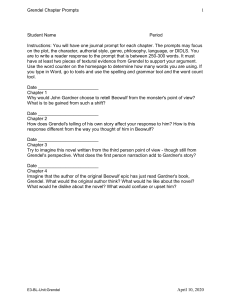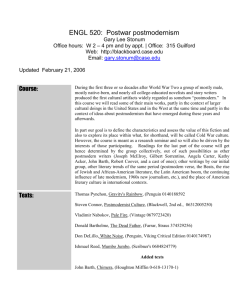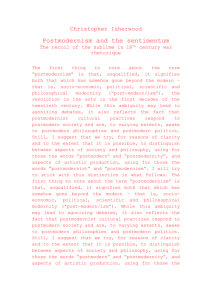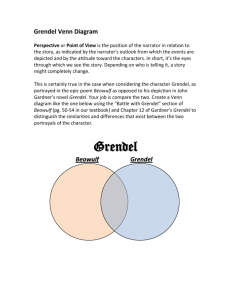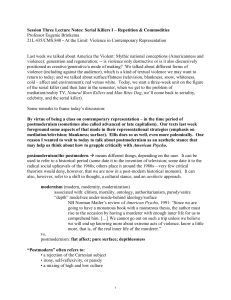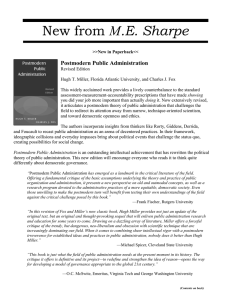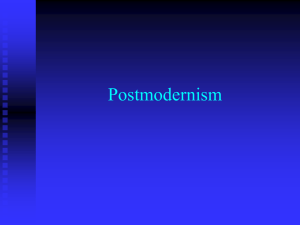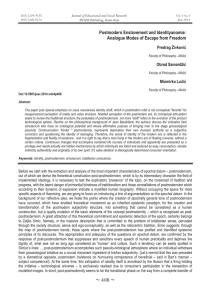Grendel Review
advertisement
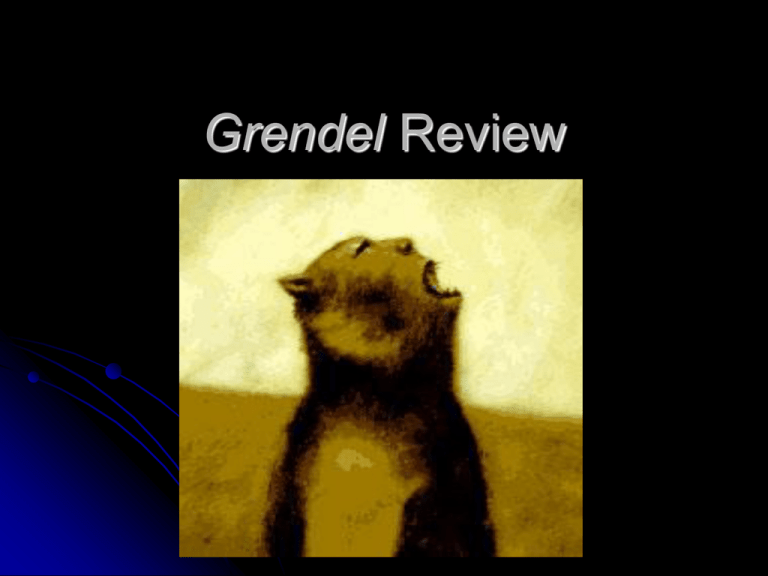
Grendel Review Objective To review the novel Grendel as a postmodern work of literature. Modernism vs. Postmodernism Modernism Emphasis on “impressionistic” writing that strays from traditional forms of narration. Moves away from objective narration with clear moral positions. Laments a fragmented view of human subjectivity, but still holds that art can provide a sense of unity, coherence, and meaning. Postmodernism Accepts and even celebrates the lack of meaning in the world. Does not pretend that art can provide meaning. Rather, delights in the nonsense. Postmodern Literature Carries modernist styles and practices to extremes. Liberated by the complete breakdown of categories that are now seen as outdated and claustrophobic Hybrid genres that erode the distinctions, For instance, between literature and journalism, literature and autobiography, and literature and history. Gardner and Postmodernism Grendel contains many of the characteristics of postmodern literature “genre-bending” assumption of the absence of meaning in life mistrust of art to provide meaning Awareness of its own place in the literary world: metafiction Metafiction The text - either directly or through the characters within - is 'aware' that it is a form of fiction. Often contains “fiction within fiction” Lines break down between characters and audience More on Gardner Some of his other works do away with postmodern techniques completely. He claimed that postmodernists were often too pessimistic. Critics are divided on his work. Themes in Grendel The Meaning and/or Meaninglessness of Life The Power of Art The Need for Community Good vs. Evil Freedom vs. Determinism What Anglo-Saxon Literature has in Common with the Postmodern World Beowulf Contains a pessimistic ending: the loyalty of the clan breaks down in Beowulf’s final moments. Wyglaf can never again really trust his men. The Seafarer and the Wanderer Both contain an anxiety about the breakdown of community. Both articulate a fear concerning the meaninglessness of life. Pain of isolation William Butler Yeats (1865-1939) THE SECOND COMING Turning and turning in the widening gyre The falcon cannot hear the falconer; Things fall apart; the centre cannot hold; Mere anarchy is loosed upon the world, The blood-dimmed tide is loosed, and everywhere The ceremony of innocence is drowned; The best lack all conviction, while the worst Are full of passionate intensity. Surely some revelation is at hand; Surely the Second Coming is at hand. The Second Coming! Hardly are those words out When a vast image out of Spiritus Mundi Troubles my sight: a waste of desert sand; A shape with lion body and the head of a man, A gaze blank and pitiless as the sun, Is moving its slow thighs, while all about it Wind shadows of the indignant desert birds. The darkness drops again but now I know That twenty centuries of stony sleep Were vexed to nightmare by a rocking cradle, And what rough beast, its hour come round at last, Slouches towards Bethlehem to be born? Take Home Essay Revise the AP practice essay according to the rubric. Use SPECIFIC textual details to back up claims. Model you essay after the example of a “9.” Do not rely on simple formulaic responses. Journal How effective is Gardner’s postmodern novel as a work based on the ancient epic poem Beowulf? How does this kind of writing differ from other works that we have read this year?

